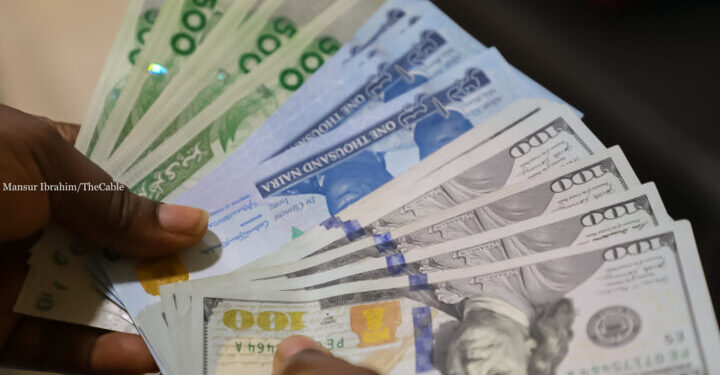On October 4, 2024, the naira strengthened by 1.69% against the U.S. dollar, closing at N1,631.21 in the official Investor and Exporter (I&E) window. This rise occurred as global crude oil prices hovered near $80 per barrel, offering some relief to Nigeria’s struggling currency.
The naira’s appreciation marked a modest recovery from its previous exchange rate of N1,659.26, despite a significant decrease in trading volume. The day’s market turnover in the I&E window fell sharply by 47%, reaching just $238.36 million compared to the $450.39 million recorded the day before.
Key Market Data
– **Closing Exchange Rate:** The naira ended the day at N1,631.21 per dollar, a 1.69% increase from the previous session.
– **Intra-Day Highs and Lows:** The naira fluctuated during the session, reaching a high of N1,679.00 and a low of N1,580.00 before settling at its final rate.
– **Market Turnover:** Turnover dropped significantly to $238.36 million, in contrast to the $450.39 million traded the previous day. In September, the total monthly turnover in the I&E window reached $3.3 billion.
– **Parallel Market Rates:** In the parallel market, the naira opened at N1,669.49 per dollar, fluctuating between N1,673.34 and N1,618.00 before closing at N1,618.75.
Market Trends and Pressures
The naira’s performance throughout September was marked by volatility, with the currency struggling to stabilize amid growing market pressures. After trading at N1,300 per dollar in March, the naira faced continued depreciation, especially in August when it hovered around N1,500. By the end of September, the currency had lost approximately 75% of its value due to inflation and high demand for foreign exchange.
Despite these challenges, Nigeria’s external reserves rose to $39.07 billion as of September 19, 2024, offering some hope for a more stable currency in the near future.
Oil Prices and Economic Outlook
Crude oil prices, which play a critical role in Nigeria’s economy, began to recover in October. Brent crude and Nigerian oil blends stabilized at around $77 per barrel, buoyed by concerns over potential supply disruptions in the Middle East. Escalating tensions between Iran and Israel have added pressure on global oil futures, contributing to the upward trend in prices.
What to Expect
If global oil prices continue to rise, Nigeria, as an OPEC member, could see increased revenue, potentially easing economic strains and supporting the naira’s value. A boost in oil earnings would strengthen Nigeria’s foreign exchange reserves, potentially improving investor sentiment toward the naira. Additionally, favorable macroeconomic policies and a weakening U.S. dollar could further support the currency’s appreciation in the coming months.










